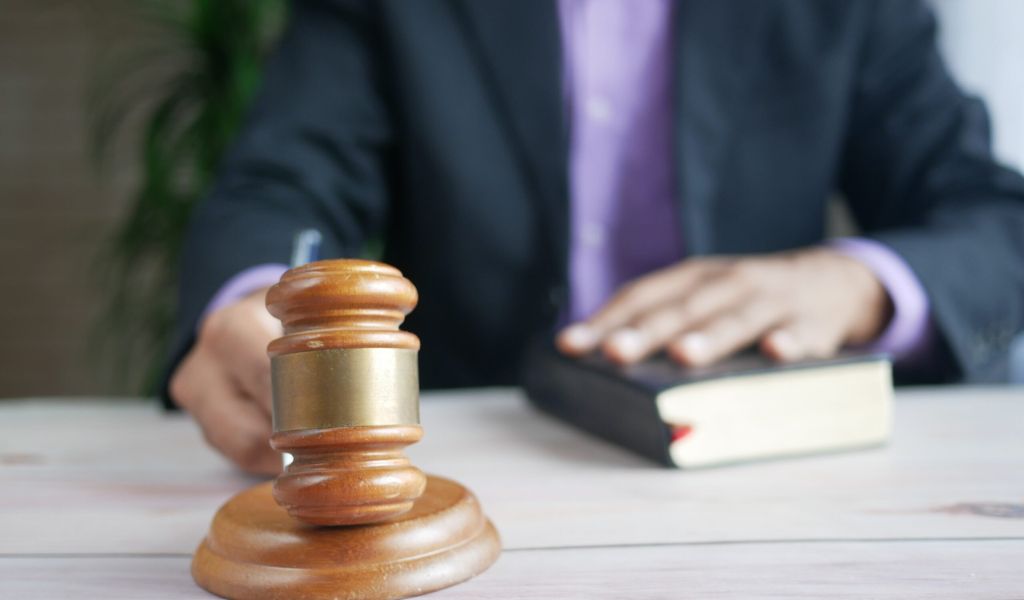ST. PAUL, Minn. — A transgender athlete should be permitted to compete in the women’s division of powerlifting contests because she is protected from discrimination under the Minnesota Human Rights Act, her attorneys said before the state Supreme Court on Tuesday.
In 2018, USA Powerlifting denied JayCee Cooper’s application to compete in the women’s division of its tournaments, citing her strength advantage over other women. Cooper filed suit in 2021, and the trial court sided with her.
However, the Minnesota Court of Appeals remanded the case to the trial court in March, stating that there were “genuine issues of fact” over whether USA Powerlifting excluded Cooper because of her transgender identity and if the group had a “legitimate business reason” for rejecting her. Cooper then brought the dispute to the state’s highest court.
Cooper’s attorney, Christy Hall, said that USA Powerlifting’s policy discriminates against all transgender women, regardless of their specific physical ability, and urged the court to overturn the Court of Appeals judgment.
“It holds that stereotypes about people’s bodies as a group may legitimately be used to discriminate against individuals,” Hall told the audience. “For example, you could use the same logic to say women can’t be firefighters because firefighters need to be strong and women as a group aren’t as strong as men.”
Ansis Viksnins, an attorney for USA Powerlifting, contended that the legislation requires courts to determine whether a defendant had a discriminatory motive, rather than simply whether the behavior was discriminatory. He argued that the Court of Appeals was correct to return the matter to the lower court to assess whether the sports organization had a valid justification for excluding Cooper from competing in its women’s division.
“I would suggest there would be a serious, chilling effect on women’s sports” if Cooper’s arguments prevail, Viksnins added.
Transgender people’s participation in sports has been a sensitive issue across the country, particularly during the autumn elections. In his presidential campaign, Republican Donald Trump made his opposition a central focus. The LGBTQ-rights movement saw Trump’s election as one of the most significant blows in its history.
At least 24 states have legislation prohibiting transgender women and girls from participating in specific women’s or girls’ sporting competitions. On Wednesday, the United States Supreme Court will hear arguments on gender-affirming care for transgender adolescents, which Tennessee and 25 other Republican-led states have barred.
In an indication of the great interest in the Minnesota case, various athletes and organizations on both sides filed friend-of-the-court papers, including former tennis champion Martina Navratilova, who was one of 83 female athletes who supported USA Powerlifting’s viewpoint. Gender Justice, a local LGBTQ+ rights organization, is one of Cooper’s supporters.
The Minnesota Human Rights Act includes broad protections against discrimination, including based on sex as broadly defined, and was updated last year to specifically include gender identity, when the Legislature also designated Minnesota as a refuge for young people seeking gender-affirming care from other states.
“We believe in the right to live free of discrimination and to pursue one’s dreams, whether that’s excelling in athletics, advancing in a career, or simply living openly as one’s own authentic self,” state Sen. Erin Maye Quade, who serves as Gender Justice’s adviser, told reporters after the hearing. “Minnesota has always been a leader in promoting justice. And we are pleased to be a trans refuge state, offering hope and assistance in an increasingly unfriendly national scene for transgender persons.”
USA Powerlifting contended in their brief that female transgender powerlifters had a considerable advantage in an inherently strength-based sport. Cooper, according to the group, might participate in an open division founded in 2021 to serve all gender identities.
Viksnins later told reporters that performance differences between male and female weightlifters provide a “legitimate, nondiscriminatory reason” to exclude transgender women and girls from competing in the group’s women’s division and that the group deserves to present that argument to a jury.
The justices took the case under advisement and did not specify when they would rule. Because the legal arguments focused primarily on how the courts should interpret Minnesota law, the final decision will not establish a binding precedent for other states. However, courts in other jurisdictions facing identical difficulties may choose to use the legal reasoning underlying it.




